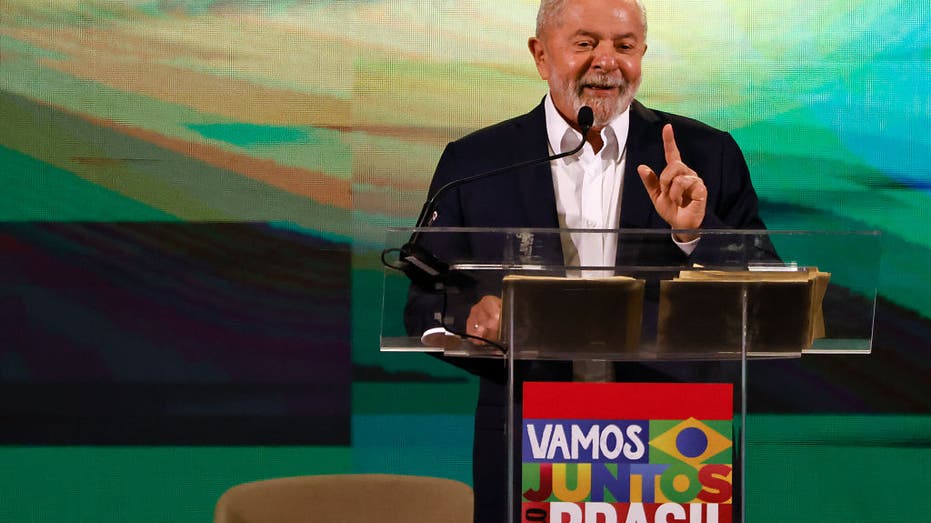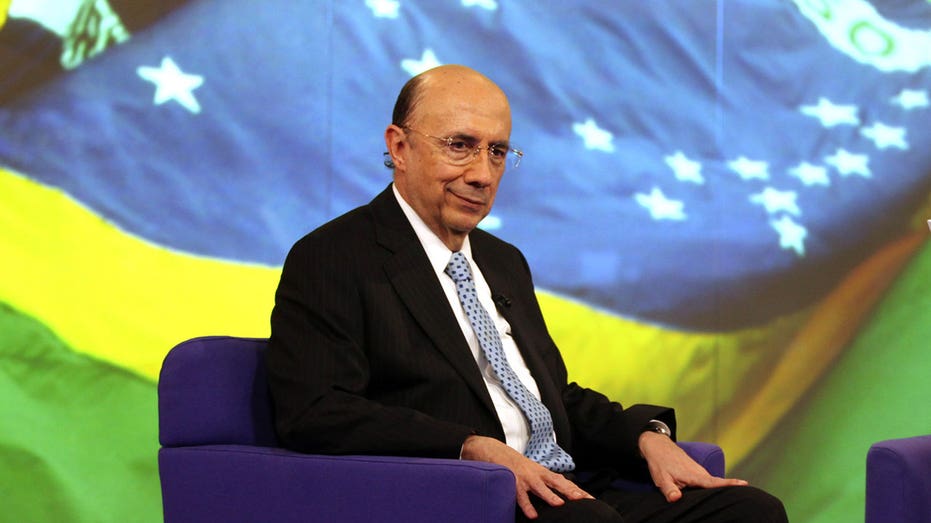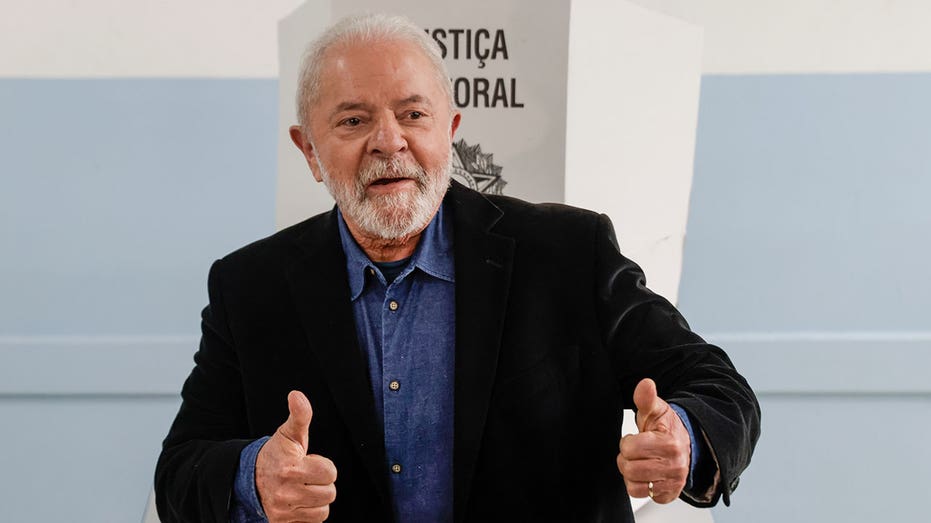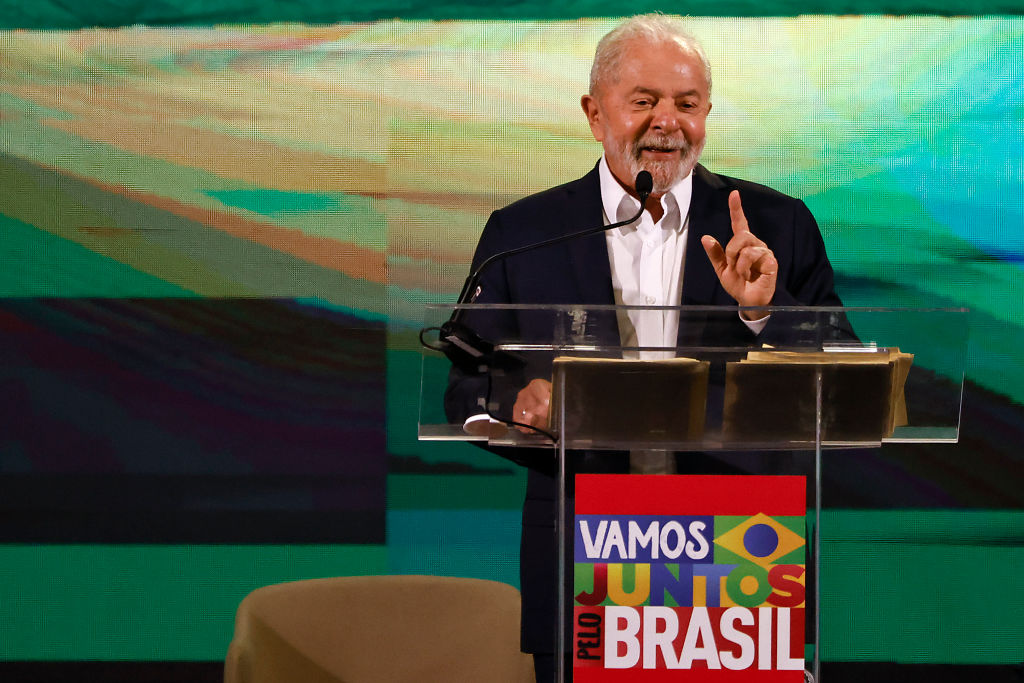New leftist Brazilian president, Lula, likely to keep orthodox economics, but shift to US foreign policy foes
Lula's choice for economy minister appears to have had a calming effect on markets
Brazilian Economy Minister Paulo Guedes discusses trade, 'acting early' on inflation
Guedes, a student of Milton Friedman, talked with Fox News Digital about Brazil's economic policies amid growing global inflation rates and a complex international trade landscape. He was in Washington last week for the annual World Bank/IMF meeting.
In the wake of incumbent President Jair Bolsonaro’s loss to leftist former President Lula da Silva, Brazil’s largest market, the Sao Paulo-based Ibovespa, saw modest gains, rising 0.56% on Monday, as investors appeared to downplay the risk of a rupture of the democratic order.
The Brazilian currency, the real, gained roughly 2.5% on the U.S. dollar, having stood at R$ 5.30 on Friday, and closing at R$ 5.17 yesterday.
While Bolsonaro has yet to publicly concede the election, he has reportedly announced to his ministers that he would not contest the election results. Key Bolsonaro allies called for calm, and stated that they would accept the election results, appearing to indicate that Bolsonaro does not plan to dispute the outcome.
Lula won in a very tight election, by a margin of just under 2%, which highlighted the distinct cultural and political divisions between Brazil’s more conservative south and the Lula-friendly north.
BRAZIL’S ECONOMY MINISTER WARNS WORLD OF STAGFLATION AND ‘VERY ROUGH TIMES AHEAD’
Lula’s administration will bring considerable economic changes, yet political and economic analysts note that Lula’s vice presidential running mate, Geraldo Alckmin, governed as a market-friendly centrist, and remains a popular and respected figure with the business community.
In comments to Fox News Digital, former Foreign Minister Ernesto Araujo suggests, "Alckmin will probably have a very important role in the government, helping to keep and organize the system we call ‘capitalismo de laços’ or ‘capitalism of ties,’ meaning the ties between business and politicians… this was the model under Cardoso (still Alckmin's mentor) and Lula's previous terms."

Luiz Inacio Lula da Silva announces his pre-candidacy for the October presidential elections at Expo Center Norte on May 7, 2022, in Sao Paulo, Brazil. (Buda Mendes/Getty Images / Getty Images)
Yet, Ryan Berg, Latin America scholar at the Center for Strategic and International Studies (CSIS), argues, "Lula, even with Geraldo Alckmin as his vice president, may not have the desire to pursue domestic reforms that help to propel Brazil into the OECD, which is one of the top policy priorities under President Bolsonaro and his Economy Minister Paulo Guedes."
Rep. Maria Elvira Salazar, R-Fla., who represents a district in Miami, praised the work of the Bolsonaro administration under Guedes, and urged the new administration not to rock the boat:
ELON MUSK, BRAZILIAN PRESIDENT DISCUSS CONNECTIVITY, AMAZON RAINFOREST PRESERVATION EFFORTS
"The prudent free-market reforms of President Bolsonaro have kept Brazil’s inflation rate below that of the United States and the regional average. The Biden administration should press the incoming government to keep the gains made by President Bolsonaro, and could learn a thing or two from their management of the economy."
Lula is expected to name former Finance Minister Henrique Mereilles to head the Ministry of Economy. Lula stated, "My economy minister will have the profile of someone with a lot of political intelligence and a person who has a lot of social commitment. You have to think about fiscal responsibility, but also about social responsibility."

Henrique Meirelles, president of the central bank of Brazil, speaks during a television interview in London, on May 27, 2010. (Simon Dawson/Bloomberg via Getty Images / Getty Images)
Mereilles is not a member of the Workers Party, but rather recently joined Uniao Brasil, which is generally regarded as center to center-right. The party maintained a neutral stance in the presidential election. Mereilles strikes a business-friendly profile, having a lengthy career in the banking industry at BankBoston, where, in 1996, he became the first foreigner to head a major U.S. bank.
COMMUNISM IN LATIN AMERICA A 'HUGE PROBLEM': ALEX GRAY
Araujo argues, "I think we should expect a somewhat orthodox set of economic policies from Lula, especially with Meirelles… Under Lula, Brazil will become part of the totalitarian axis running from Beijing to Moscow to Tehran to Caracas and now to Brasília. In that power scheme, Brazil's role will be the one of breadbasket for China and provider of funds for other South American socialist countries, so they cannot let the Brazilian economy go bust."
Berg envisions tension between Lula’s left-wing party and some ministers:
"Some of these reforms, which involve macro level domestic reforms to the economy, may not sit well with Lula’s Workers Party."
Yet the geopolitical ramifications are likely to be far more marked than economic divergences.

Luiz Inacio Lula da Silva gestures to the journalists after voting on Oct. 2, 2022, in Sao Bernardo do Campo, Brazil. (Alexandre Schneider/Getty Images / Getty Images)
Berg suggests Lula "will likely be less disposed to push back against Chinese burgeoning influence in Brazil, and may invite more China as a counterbalance to the U.S. This may impact the U.S.-Brazil economic relationship in adverse ways."
Rep. Salazar views the return of Lula as a threat to the region, and promises to use her role on the Foreign Relations Committee to actively monitor the geopolitical implications for the region:
BRAZIL’S ECONOMY MINISTER WARNS WORLD OF STAGFLATION AND ‘VERY ROUGH TIMES AHEAD’
"The last time Lula was president of Brazil, countless funds were stolen in one the largest corruption schemes ever known, the country was filled with Cuban communist agents, and it was the nucleus for spreading socialist revolution throughout the region. I will be attentive to make sure this does not happen again."
CLICK HERE TO GET THE FOX BUSINESS APP
In the meantime, the world waits to see if Bolsonaro will finally break his silence and address the public today.




















